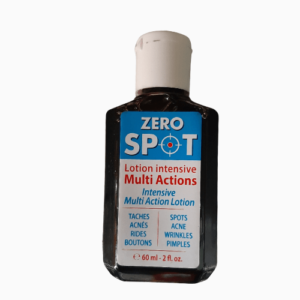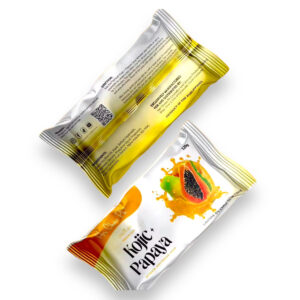Table of Contents
Uncover the Truth About Hyperpigmentation: What You Need to Know About Your Skin
Have you ever noticed dark spots or patches on your skin that refuse to fade away? Do you feel like you’re at a loss for how to get rid of them? You’re not alone. Hyperpigmentation, a common skin condition characterized by excessive pigmentation in specific areas, affects millions of people worldwide. But what exactly is hyperpigmentation, and what causes it? In this article, we’ll delve into the world of hyperpigmentation, exploring its types, causes, and most importantly, treatments.
What is Hyperpigmentation?
Hyperpigmentation is a skin condition where patches of skin become darker in color, often due to an overproduction of melanin, the pigment responsible for skin color. There are three main types of hyperpigmentation: epidermal, dermal, and compound. Epidermal hyperpigmentation affects the outermost layer of the skin, while dermal hyperpigmentation affects the deeper layers. Compound hyperpigmentation occurs when both epidermal and dermal layers are affected. The good news is that hyperpigmentation is generally not a sign of any underlying medical condition, although it can be a symptom of certain health issues such as vitamin deficiencies or hormonal imbalances.
Causes of Hyperpigmentation
Sun exposure is one of the most common causes of hyperpigmentation. Prolonged exposure to UV radiation can cause the skin to produce more melanin, leading to dark spots and patches. In addition to sun exposure, other causes of hyperpigmentation include:
- Inflammatory skin conditions such as acne, rosacea, and eczema
- Hormonal fluctuations during pregnancy, menopause, or thyroid disorders
- Injury to the skin, such as cuts or burns
- Birthmarks and freckles
- Skin care products or cosmetics that contain harsh chemicals or irritants
- Genetics
Diagnosis and Treatment of Hyperpigmentation
Diagnosing hyperpigmentation is relatively straightforward, as it can often be visualized with a simple skin examination. Your dermatologist may also conduct a medical history and examination to rule out any underlying medical conditions that may be contributing to the hyperpigmentation. Treatment options for hyperpigmentation vary depending on the type and severity of the condition. Topical treatments, such as creams or serums, may be prescribed to help lighten dark spots and patches. These treatments may contain ingredients such as hydroquinone, retinoids, or vitamin C. In some cases, more aggressive treatments such as laser therapy, chemical peels, or microdermabrasion may be necessary to address deeper layers of hyperpigmentation.
Prevention and Maintenance
While hyperpigmentation can be challenging to treat, there are several steps you can take to prevent it from occurring in the first place. The key is to protect your skin from the sun by using a broad-spectrum sunscreen with a Sun Protection Factor (SPF) of at least 30 daily, especially during peak sun hours. You should also avoid smoking and reduce your exposure to environmental stressors. A healthy diet rich in antioxidants and vitamins A, C, and E can also help maintain healthy, glowing skin. By following these simple steps, you can reduce your risk of developing hyperpigmentation and maintain a healthy, radiant complexion.
Conclusion
Hyperpigmentation is a common skin condition that affects millions of people worldwide. By understanding its causes, diagnosis, and treatment options, you can take the first step towards achieving healthy, glowing skin. Remember to protect your skin from the sun, maintain a healthy diet, and address any underlying medical conditions to prevent hyperpigmentation from occurring in the first place. With patience, persistence, and the right treatment, you can say goodbye to dark spots and hello to a radiant, healthy complexion.
Recommended Products
-
Product on sale
 Arbutin 3X Skin Whitening Collagen Body Cream 250gOriginal price was: KD8.000.KD7.000Current price is: KD7.000.
Arbutin 3X Skin Whitening Collagen Body Cream 250gOriginal price was: KD8.000.KD7.000Current price is: KD7.000. -
 Gmeelan Orange Enzymes Exfoliating Brightening Gel – 50gKD4.500
Gmeelan Orange Enzymes Exfoliating Brightening Gel – 50gKD4.500 -
 Zero Spot Lotion 60ml | Clear & Even SkinKD5.000
Zero Spot Lotion 60ml | Clear & Even SkinKD5.000 -
Product on sale
 You Glow Babe Beauty White REJUV SETOriginal price was: KD8.000.KD6.000Current price is: KD6.000.
You Glow Babe Beauty White REJUV SETOriginal price was: KD8.000.KD6.000Current price is: KD6.000. -
 Prestige Kagayaku Bleaching Soap 75gKD2.000
Prestige Kagayaku Bleaching Soap 75gKD2.000 -
 Ashley Shine Niacinamide Whitening 3 in 1 Day Cream – 50gKD4.000
Ashley Shine Niacinamide Whitening 3 in 1 Day Cream – 50gKD4.000 -
 Her Choice Kojic Papaya Soap 120gKD2.500
Her Choice Kojic Papaya Soap 120gKD2.500 -
 Anua Peach 70 Niacin Serum 30mlKD8.000
Anua Peach 70 Niacin Serum 30mlKD8.000 -
 RDL Kalamansi Whitening Soap – 135gKD1.250
RDL Kalamansi Whitening Soap – 135gKD1.250




